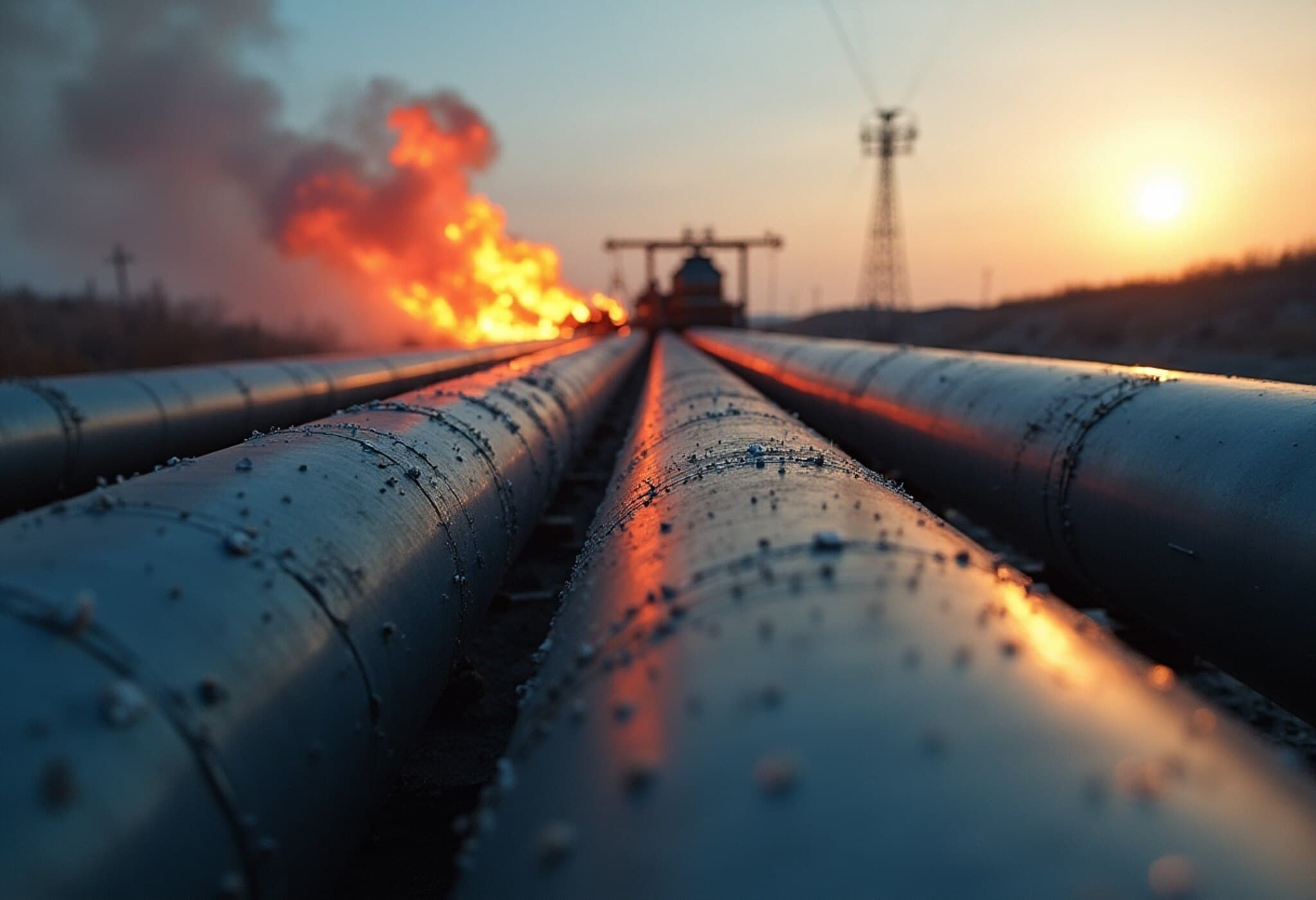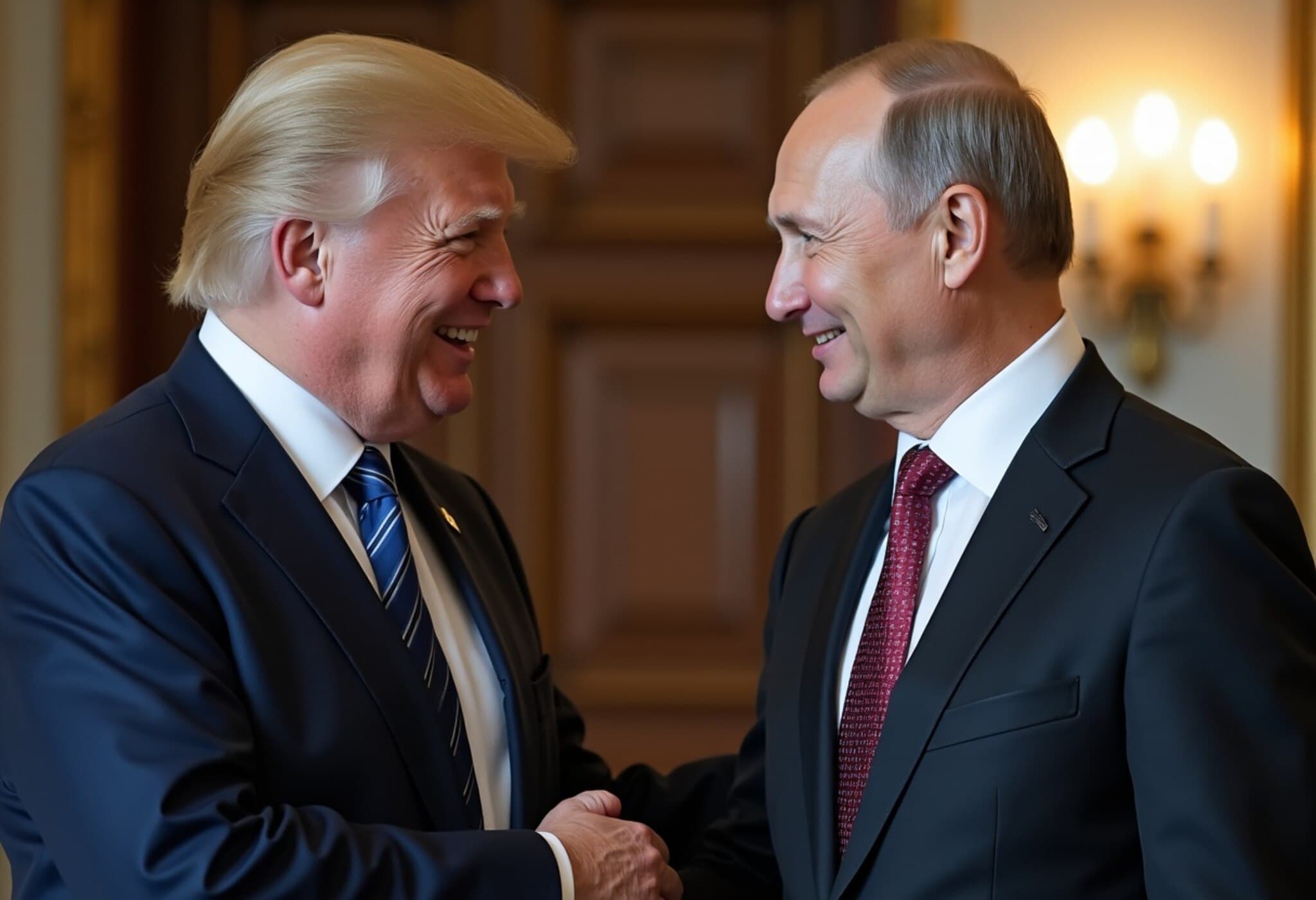Ukrainian Attacks Disrupt Russian Oil Supplies to Hungary and Slovakia
For the second time in a single week, Ukrainian military operations have targeted Russia’s Druzhba oil pipeline, cutting off critical supplies to the European Union member states of Hungary and Slovakia. The interruption, expected to last for at least five days, has heightened concerns over energy security and economic stability in the affected countries.
Escalating Energy Conflict in Eastern Europe
The latest strike occurred late Thursday night, focusing on the Unecha oil pumping station in Russia’s Bryansk region near the Ukrainian border. This critical facility is part of the Soviet-era Druzhba pipeline, a vital artery transporting both Russian and Kazakh oil westward through Belarus and Ukraine to Central and Western European markets.
Alexander Bogomaz, governor of Russia’s Bryansk region, confirmed that missile and drone attacks — involving HIMARS multiple launch rocket systems and unmanned aerial vehicles — ignited a fire at the oil infrastructure, though authorities have since extinguished the blaze.
Hungary and Slovakia Brace for Supply Disruptions
Both Hungary and Slovakia rely heavily on Russian oil imports transported via the Druzhba pipeline. With supplies now paused, their governments have formally appealed to the European Commission to safeguard energy delivery and mitigate economic fallout.
“The physical and geographical reality is that without this pipeline, the safe supply of our countries is simply not possible,” Hungarian Foreign Minister Peter Szijjarto and his Slovak counterpart Juraj Blanar wrote in a joint letter.
Hungary, in particular, views this as a direct threat to its energy security. Szijjarto called the strike “another attack against our energy security” on social media, underscoring the vulnerability of Central European energy networks amidst the ongoing conflict.
Context: Energy Politics and the Ukraine Conflict
The disruption comes amid heightened hostilities between Ukraine and Russia, as both nations increasingly target each other’s energy infrastructure. Since Russia launched its full-scale invasion of Ukraine in 2022, the European Union has sought to reduce its dependency on Russian fossil fuels, planning a full phase-out by 2027. However, Hungary and Slovakia have opposed these sanctions, citing their economic need for Russian energy supplies.
This divergence underscores broader tensions within the EU regarding how to balance economic interests, national security, and solidarity over geopolitical conflicts.
Wider Ramifications and Unseen Angles
- Impact on winter heating and industry: Russia’s retaliatory strikes on Ukrainian energy infrastructure have threatened Ukraine’s preparations for heating and industrial fuel needs as colder months approach.
- Fueling the conflict through energy: Disruptions to energy supply lines represent a strategic front in the broader battle, directly affecting civilian populations and economies on both sides.
- Germany’s position: Despite the strikes, Germany has reported that its oil supplies via the Druzhba pipeline from Kazakhstan remain unaffected, highlighting regional disparities in impact.
Expert Insight: Navigating a Fragile Energy Landscape
Energy security experts warn that these pipeline disruptions might signal a new phase of conflict escalation with tangible risks to European energy markets. The intertwined nature of energy supply and geopolitical conflict calls for renewed diplomacy and contingency planning. For the EU, balancing sanctions with the economic realities faced by member states like Hungary and Slovakia remains a formidable challenge.
Dr. Elena Kostova, a European energy policy analyst, notes: “These attacks deepen the vulnerability of critical energy corridors in Europe. The EU must intensify efforts to diversify energy sources and strengthen infrastructure resilience, while maintaining a unified stance on sanctions to sustainably address the root conflict.”
Looking Ahead: Navigating Risks and Responses
As the conflict continues to play out on energy infrastructure, European nations must grapple with immediate supply disruptions alongside longer-term strategic realignments away from Russian dependency. The humanitarian and economic stakes are high — with millions depending on stable fuel supplies as winter approaches.
For Hungary and Slovakia, the question remains: how will they manage the dual pressures of allegiance to EU policy and the pressing need for uninterrupted energy? This latest disruption puts those domestic debates and regional alliances under sharp focus.
The repeated halting of Russian oil pipelines reveals the evolving nature of hybrid warfare where infrastructure becomes a battlefield and civilian needs are collateral casualties. It also exposes fissures within the EU on energy policy and sanctions strategy. As winter looms, the urgency to find sustainable and secure energy pathways grows, but so does the need for diplomatic solutions to de-escalate turmoil that transcends borders.
















